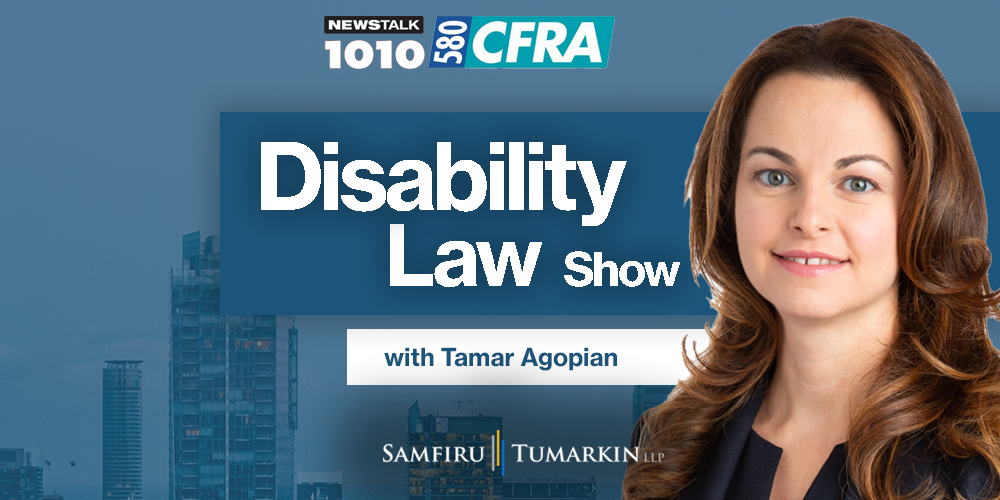Disability Law Show: Ontario – S5 E09

Episode Summary
Should claimants appeal a denial of disability benefits? Disability lawyer and Partner Tamar Agopian, at Samfiru Tumarkin LLP, answers this question and more on the Disability Law Show on Newstalk 1010 in Toronto.
Listen below to discover important information about your rights and a guide through the proper steps to take when your insurance provider cuts off your long-term disability or denies your insurance claim.
When you need a disability lawyer in Ontario, James can get you the advice you need, and the compensation you deserve.
Listen to the Episode
Show Notes
- Mental health condition but no diagnosis: Insurance adjusters often deny mental health claims due to no objective medical evidence. It is important for claimants to remember that a diagnosis is not required in order to qualify for disability benefits. Claimants that have the support of treating physicians and continue to have debilitating symptoms should receive LTD approval.
- Appealing a long-term disability denial: Many claimants are denied long-term disability benefits and encouraged to appeal the denial by the insurance company. A transition from short to long-term disability benefits can be difficult and does not result in automatic approval. It is vital for claimants to have detailed and up-to-date medical information. The appeals process is rarely successful and not conducted by an objective third party.
- Surveillance by the insurer on trips to the gym: Disability insurers are able to implement surveillance to follow claimants to determine their level of activity. It is not common for insurance adjusters to use surveillance due to the cost. Claimants should continue to be open and honest about their daily activities and continue to follow medical treatment. Insurers are obligated to inform claimants if their claims are denied due to surveillance.
- Employer’s role while an employee is on disability leave: Disability insurers can update a claimant’s employer regarding their ongoing disability claim. Employees should continue to inform their employers regarding their prognosis. Employers are entitled to know if a claimant is ready to return to work but are not permitted to know specific medical information.




